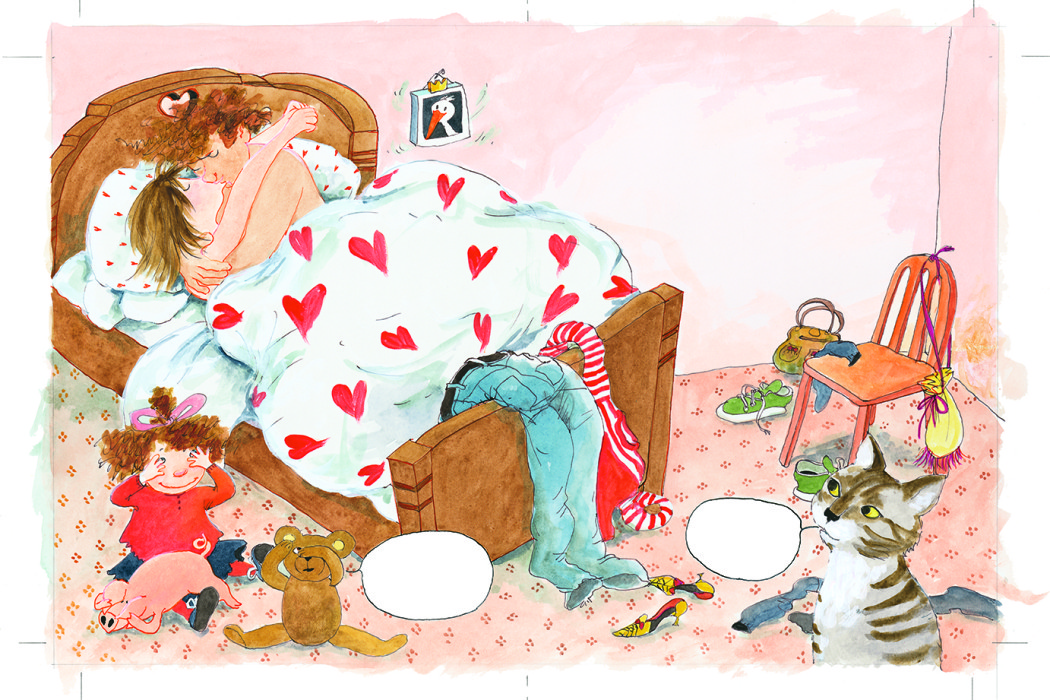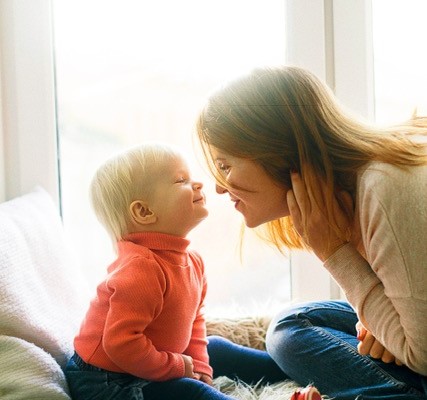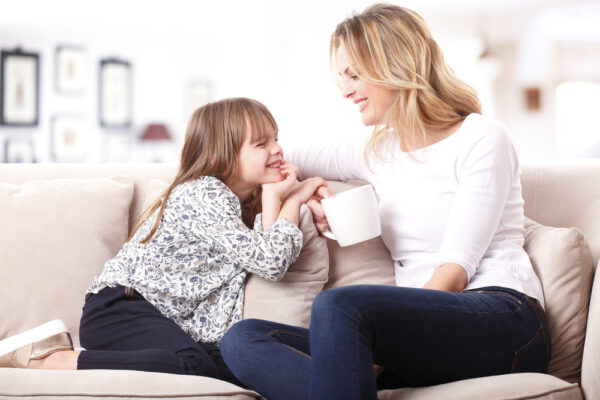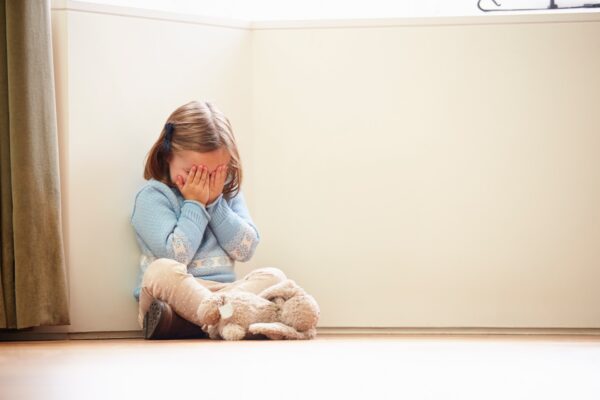When I heard the words “Mads stikker sin tissemand ind i Emilia’s tissekone” “Matt sticks his penis into Emilia’s vagina” I was sure I was mistaken. Danish can be a difficult language to comprehend at close range, much less from another room so I chalked it up to a misunderstanding. It was my husband’s reading night with our 5-year-old daughter and despite having had a lot of jaw dropping moments with the “Danish way”, I was sure he wasn’t teaching her about sex.
The next night our daughter knew exactly what book she wanted daddy to read; “How Emma became Emma”. (Da Emma blev Emma). I hung around with my bat ears on casually lurking around the room and there it was again: penis and vagina oh my! I came and looked at the book and sure enough, there were two naked people kissing in a bed full of hearts. A little girl, presumably Emma, snorkeled through a sea full of smiling sperm.
Now, I have always been open to the authentic approach in the Danish way of parenting but this was a little bit out of my comfort zone. Since I believe firmly in “the Danish way” however, I decided to ask myself why reading a book about intercourse seemed so outrageous to me.
Did it have to do with my own culture and upbringing? I started wondering why sex seemed like such a charged and taboo subject at almost any age. Little children aren’t sexually fantasizing, they are merely curious. So why did it feel so wrong?
It’s true that “tissemand” (pee husband) and “tissekone” (pee wife) seem like adorable euphemisms for penis and vagina but they are, in fact, their Danish given proper names until they reach adulthood. They aren’t cute renditions of them like so many other languages give with a variety of choice. I have heard everything from little potatoes, to peas, to wee wees and pee pees. One wonders why every other body part is allowed to be called by its’ rightful name except for penis and vagina. What is it about those words that feel so uncomfortable? Nose, hands and armpits don’t have a problem being who they are. They don’t get cute little nicknames like no no or put put. Why do these perfectly natural body parts need aliases to hide their true identity in so many languages? Isn’t this just a prettily decorated veil of shame?
And if it isn’t, why don’t we have an age appropriate name that everyone uses across the board that describes these “private” parts? I mean standard words with no stigma attached that we can all look up in the dictionary? Because I checked, and wee wee and pee pee aren’t there.
Upon researching I discovered that Planned Parenthood, an organization to help parents in the US, actually recommends talking about sex in early childhood. Moreover, many medical professionals and sex-abuse prevention educators are encouraging parents to teach their kids accurate information about their bodies. This includes correct words to identify their genitalia. They say that it is an important method for teaching consent and preventing sexual crimes.
Kate Rohdenburg, a sexual violence prevention educator in New England says that teaching children anatomically correct terms “promotes positive body image, self confidence, and parent-child communication; it discourages perpetrators; and, in the event of sexual abuse, helps children and adults feel more comfortable talking about it.”
If you think about it, it makes sense. I can feel uncomfortable just thinking about saying the words penis and vagina out loud to my children. How does saying them make you feel? Now imagine how a child might feel who has to discuss an unpleasant event using those very words that have been taboo their whole life? Words that are no more wrong than a nose or an elbow? It does make one wonder.
Many parents are so busy trying to protect their children that we forget how important it is to teach honesty and acceptance of our bodies. How important it is to leave a healthy legacy of one of the most natural human expressions there is. Children are merely curious. Embarrassment and judgment are adult projections that serve to imprison many of us. Perhaps if we agreed on a universally neutral vocabulary that wasn’t awkward, we could shake those shackles of shame around sexuality for ourselves and for our children. And then we might just find that the truth really does set you free.
What do you call these body parts with your own children and would you be open to more honesty at a younger age while children are still innocent? Do you think this would defuse the mystery later in life when they are confronted with so many mixed messages and terminology? It does make one wonder if “the talk” would be easier if it was an already ongoing conversation with stigma free vocabulary.
photo: A scene from ‘Da Emma blev Emma’. Illustration: Kirsten Raagaard/Forlaget Carlsen






Rachel
Where can we get an English translation of Da Emma blev Emma?